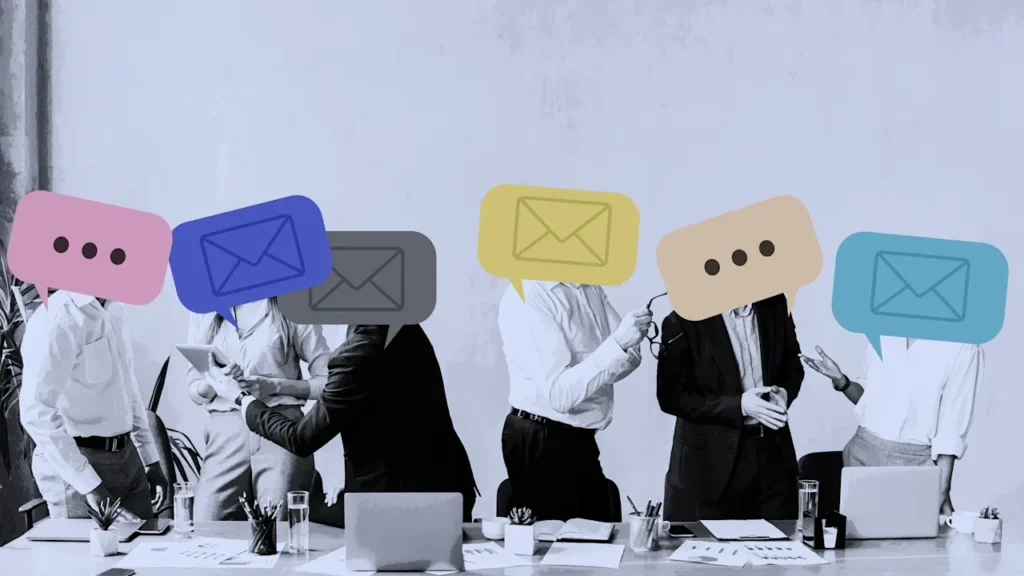
“Let’s circle back when we have the bandwidth to touch base on whether we need to hop on a call to tackle the low-hanging fruit.”
(If this corporate buzzword bingo sent a shiver down your spine—apologies.)
In the world of professional communication, business jargon is often a necessary evil. Email clichés: love ‘em or hate ‘em, we all use ‘em.
Many of us are trapped in a terminal cycle of “reaching out” and “circling back” to make sure “we’re aligned.” Recent analysis from email verification company ZeroBounce looked at more than one million real work emails to find out which overused email phrases are the most common offenders.
To no one’s surprise, “reaching out” is the reigning champ with 6,117 appearances, shortly followed by follow-ups of all kinds (“to follow up,” “following up,” “will follow up”) with 5,755 mentions.
Nearly 3,000 emails also started with a version of “hope”: “Hope you’re doing well,” “Hope this finds you well,” or “Hope all is well.”
Other honorable mentions include “Happy Friday” (as well as the slightly less popular “Happy Monday”). “Touch base,” “hop on a call,” “bandwidth,” and “low-hanging fruit” were commonly identified by researchers..
“Language habits are some of the hardest to change,” Liviu Tanase, founder and CEO of ZeroBounce, told Fast Company. Despite nearly one in four employees now using AI to help write emails, the language hasn’t moved with the times.
“Even with smart AI tools embedded in our inboxes, people still fall back on familiar phrases because they feel safe and sometimes, we don’t know what else to say.”
She added: “Maybe it’s time we all ‘circle back’ to sounding human again.”
Here, Gen Z is leading the charge. Young workers have no qualms including memes, emojis, slang, and abbreviations in their emails—just as they would text in a group chat with friends.
Around 71% of people surveyed by the U.K. bank Barclays in 2023 said they believed Gen Z was changing the formality of language in the workplace. What worked in formal business correspondence just a decade or two ago, can be received as cold or even rude among today’s digital natives.
For those looking to refresh their email etiquette, ZeroBounce offered a few easy swaps to test out in your next correspondence.
Rather than penning “hope this finds you well,” you could ask, “how’s your week going?” Or open with, “Good morning – quick one.”
The ubiquitous “just checking in” or “following up” can be replaced with something more direct: “What are your thoughts on the proposal?” (Many of us default to using “softer” language to our detriment, anyway.)
For those looking to shake things further and take a leaf out of Gen Z’s playbook, one TikTok creator offered some suggestions to inject more mystery or foreboding in the workplace.
“I hope this email finds you,” he suggests. “This kind of implies that everyone thinks you’re missing and they don’t know where you are. This is something really good to send to your remote coworkers.”
Disclaimer: use at your own risk. But if you want to use a safer work email cliché, you can always just ask them to ping you.


